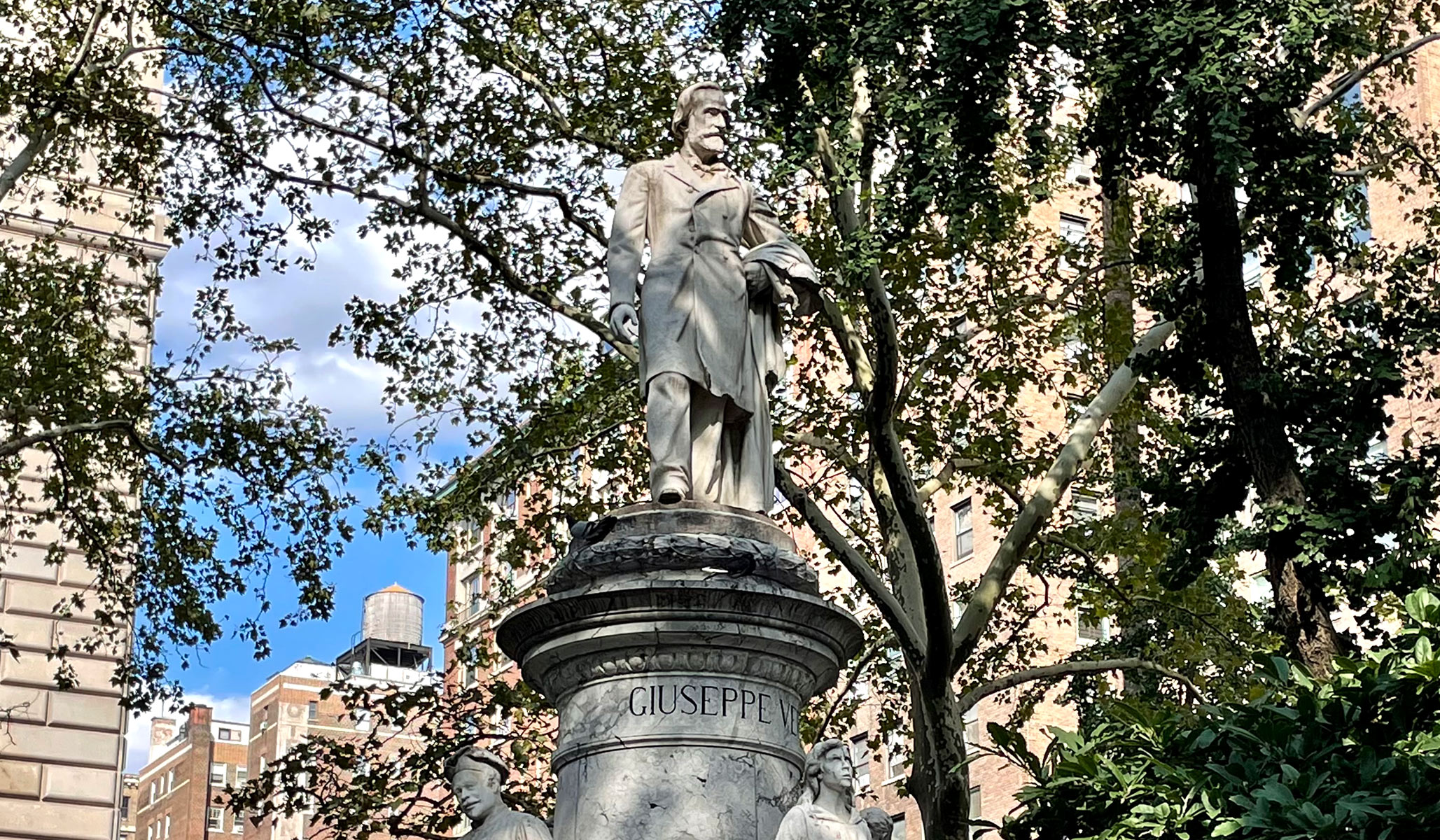 That man up there is Giuseppe Verdi. At least that is a statue of him, in New York’s Verdi Square. I bring up this square in a piece today, here: “New York Stories: On the rise and fall — and rise again? — of a city.”
That man up there is Giuseppe Verdi. At least that is a statue of him, in New York’s Verdi Square. I bring up this square in a piece today, here: “New York Stories: On the rise and fall — and rise again? — of a city.”
Let me quote, please:
Outside my window, I’m looking at Verdi Square and Sherman Square, which are in the general area of 72nd and Broadway. These squares, together, were once known as “Needle Park.” In 1971, there was a movie, The Panic in Needle Park, starring Al Pacino.
By the time I got here, “Needle Park” was heavenly — no needle park at all. The biggest danger was being bumped by a baby stroller, pushed by a happy young mom (or her nanny).
And now? Not bad; not good. Anyway, no matter where you live, you might find this piece on New York interesting.
Let’s have some reader mail. An Impromptus column last week contained the following item:
In the 1980s, a lot of people referred to AIDS as the “first political disease,” or “politicized disease.” People also said, “AIDS is the first disease to double as a civil-rights issue.” I wonder: Have the politics around any disease been as fierce as those around the current pandemic?
The answer, says Randall B. Clark, is “an emphatic yes”: the politics around the yellow-fever epidemic of 1793.
The onset of yellow fever that year was more intense than previous epidemics and arrived at the same time as refugees from the slave revolt on Santo Domingo — and also some rotting coffee beans on a Philadelphia quay.
Federalists, such as Hamilton and Knox, hypothesized a connection between, on one hand, émigrés and beans, and, on the other, yellow fever. Republicans, such as Rush, postulated the illness’s origin in American indolence. Political prescriptions followed: Federalists took a gentle “tonic,” while Republicans bled themselves. Soft medicine for those who thought themselves (and the citizenry) blameless; harsh treatment for those in need of virtue.
I wrote about this at length in a law-review article that ended my scholarly career: Bleedings, Purges, and Vomits: Dr. Benjamin Rush’s Republican Medicine, the Bilious Remitting Yellow-Fever Epidemic of 1793, and the Non-Origin of the Law of Informed Consent.
Mr. Clark’s paper can be found here.
One more e-mail? A quickie? From that wit and sage Dave Taggart, in Calhoun, Ga.? In another Impromptus of last week, I discussed Bess Myerson, who was Miss America 1945. (She was a significant winner, too.) Dave writes,
I miss when Miss America and the Heavy Weight Champ mattered.
Now I know how my father felt when he talked about listening to Little Orphan Annie and Jack Armstrong on the radio.
Yes. The full title of that second show, by the way, was “Jack Armstrong, the All-American Boy.”
No comments:
Post a Comment